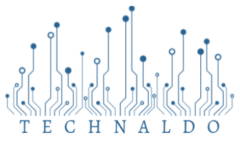In its most basic form, bio&tech is simply technology based on biology; it uses biomolecular processes to create products and technologies that enhance our quality of life and the world’s health. For almost 6,000 years, we have produced valuable foods like bread and cheese and preserved dairy products using the biological activities of microorganisms. With cutting-edge biotechnology, we can now fight crippling and uncommon diseases, lessen our impact on the environment, and create cleaner and more effective industrial manufacturing processes.
Primary uses of bio&tech
Let’s look at the primary uses of biotechnology in the present day.
Medicinal uses
There are several uses for biotechnology in the medical industry. The following are a few medical applications of biotechnology:
| Gene therapy | The most potential solution to the issue of hereditary illnesses is gene therapy. Gene therapy treats genetic problems by inserting a normal gene for the defective gene into the patient. The functioning gene takes the place of the damaged or inactive gene. If the treatment is started in the earliest stages of life, it has the best potential to produce a long-lasting cure. |
| Recombinant Gene | Diabetic individuals need insulin to get rid of extra sugar in the blood. Patients with diabetes have very low or no insulin production in their bodies. As a result, individuals require insulin to manage their blood sugar levels. Later, it was found that humans could use the insulin produced by pigs’ pancreas. The human insulin gene was cloned as a result of this. E. coli bacteria were given the precise gene sequence that codes for human insulin. Several E. coli bacteria with the recombinant human insulin gene were created in less than 24 hours, thanks to bio&tech. |
| Vaccines | Animals and cell cultures are used to produce vaccines. Inactivated pathogens are present in these vaccinations. Antigens employed as edible vaccines can be made from transgenic plants. Plants like tomatoes and bananas can express antigenic proteins from various diseases. Animal mouth disease can be treated using transgenic sugar beet, and cholera and hepatitis B can be treated with transgenic bananas and tomatoes. |
| Disease Diagnosis | Another use of bio&tech in the medical field is medical diagnostics. The pathogen concentration has frequently increased when the disease is recognized. As a result, early identification and understanding of pathophysiology are crucial for a treatment to be effective. Techniques like recombinant DNA technology and polymerase chain reaction can aid with this. |
| Pharmacogenomics | Drugs that are best matched to a person’s genetic makeup have been created thanks to pharmacogenomics. It can treat conditions like cancer, depression, HIV, asthma, and more. |
Some common uses of biotechnology
- An old biotechnological invention is fermentation. Microorganisms like yeast are use to produce alcohol and bread. In the current reality, cultures have been purge to generate premium food items.
- Another use of biotechnology in agriculture is crop enhancement through breeding plant breeds with desirable features.
- We can make our desire plant with the help of genetic engineering.
- Another biotechnological method for growing several plants from an explant is tissue culture.
- Additionally, it contributes to the expansion of threatened plant species.
- It is also helpful in forensics to identify criminals and paternity cases.
Bio&tech in agricultural advancements
Biotechnology makes the employment of more ecologically friendly farming methods easier, increasing crop tolerance to herbicides and improving crop pest resistance. To feed the globe, biotech:
- Increasing crop yields while using fewer inputs.
- Decreasing the chemical usage in crops while decreasing the environmental impact of these product’s runoff.
- Also, using biotech crops that enable farmers to reduce agricultural tilling and require fewer pesticide treatments.
- Moreover, creating plants with improved nutritional profiles to address vitamin and nutrient shortages.
- Furthermore, generating food free of contaminants like mycotoxin and allergies.
- Increasing the oil content of food and crops to aid in cardiovascular health improvement.
Scope of bio&tech in today’s world
The field of biotechnology has become one of the most sought-after careers. There has been nothing less than a revolution in the many branches of medical science due to the current surge in research and development in the biotechnology sector.
Biotechnologists are on the cutting edge of ongoing evolution and innovation, whether it is the development of Biochemical Engineering, opening up bioprinting to more people, or producing energy from biological sources. The endless search for fresh, sustainable food sources is led by biotechnologists. When it comes to the breadth of bio&tech and its related sectors, the past ten years have seen excellent rates of growth; however, in the future, it may become one of the essential industries to watch out for in the following decade.
They can work in various settings, including those related to the industry, the environment, health care, pharmaceuticals, and food processing. Specialists in this area might choose from subspecialties like genomes, proteomics, and bioinformatics. Moreover, development of biotechnology affects many fields, including immunology, virology, and other sciences, as well as those related to health, agriculture, cell biology, plant physiology, seed technology, etc.
Who is a Biotechnologist?
Biotechnologists conduct research in both commercial and governmental labs to alter or manipulate living things to create new products. Also, biotechnologists might find work in various fields as biochemists, biophysicists, or medical scientists. Moreover, biotechnologists create valuable products from biological systems, even though “biotechnology” which we frequently associate with genetically engineered materials. Biotechnologists operate in various fields. Such as agriculture, food production, healthcare, and pharmaceuticals.
Conclusion
Bio&tech, as the name implies, combines the fields of biology and technology. Biological components help us to create products that benefit humanity. It is a technology that uses natural methods to make a product for a particular use. Biotechnology may intersect with other disciplines, such as bioengineering, depending on its applications.
Also read : 4 Important Ways Virtual Reality Is Impacting Healthcare

